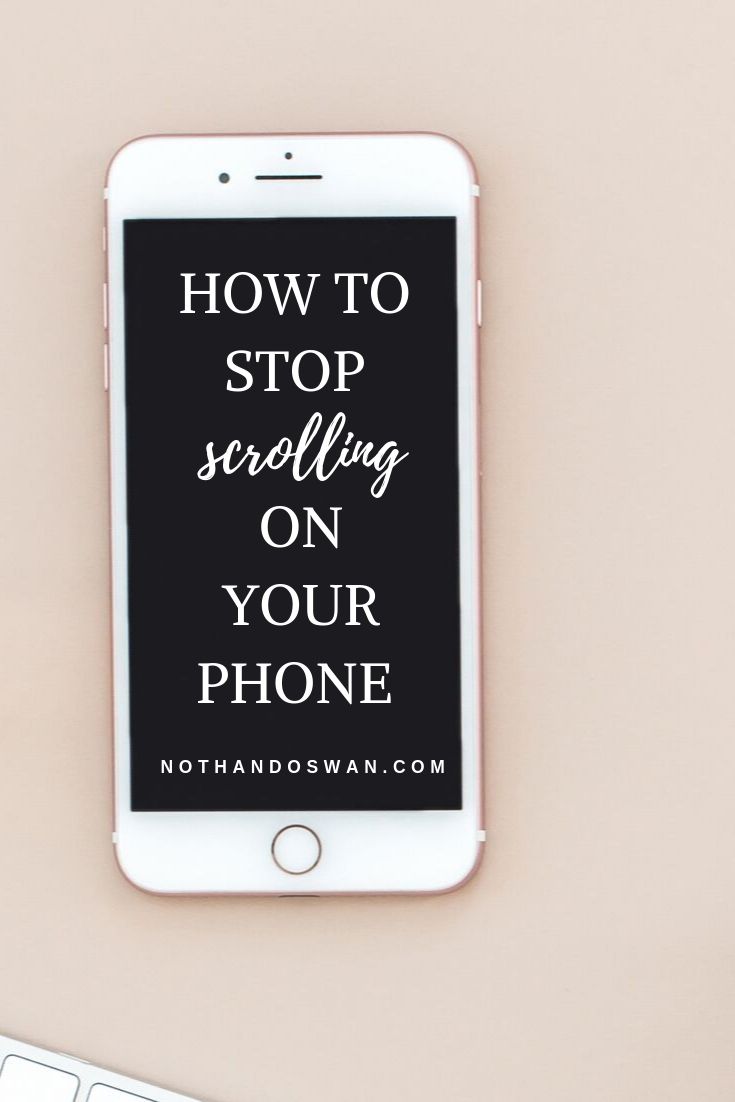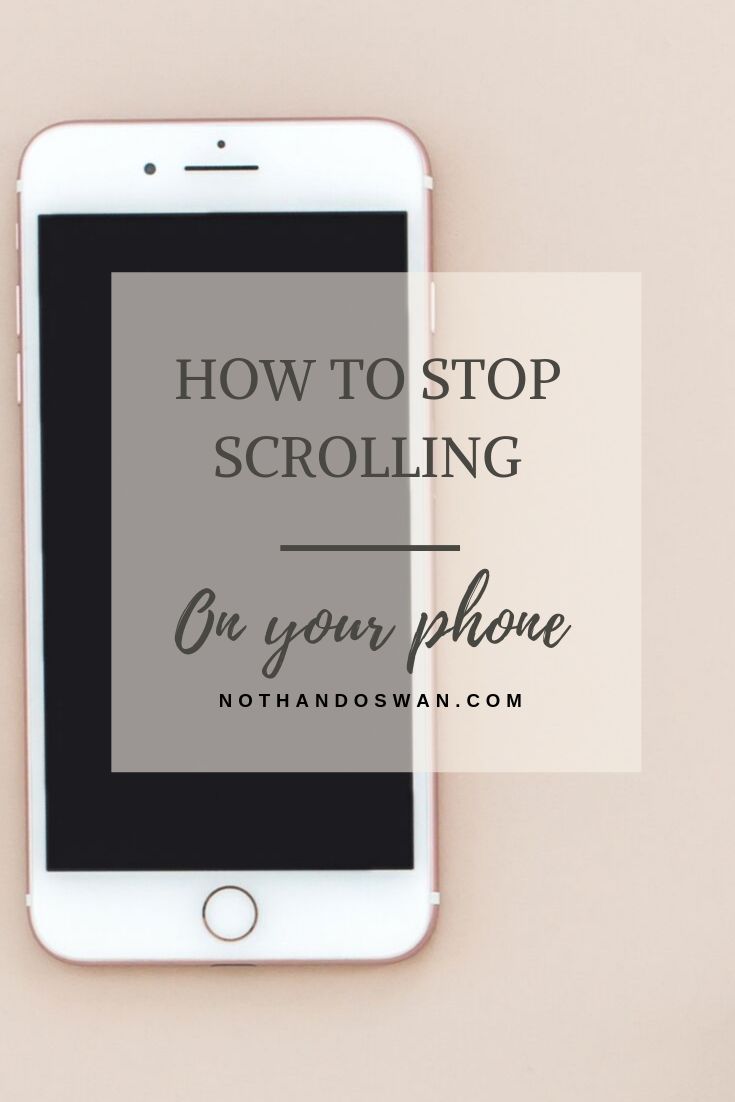Y’all. Let’s talk about our phones. I know we get tired of hearing this, but the way we use them can be problematic. I’ll be the first to admit there was a point in time when I spent hours on my phone. Hours of mindless scrolling.
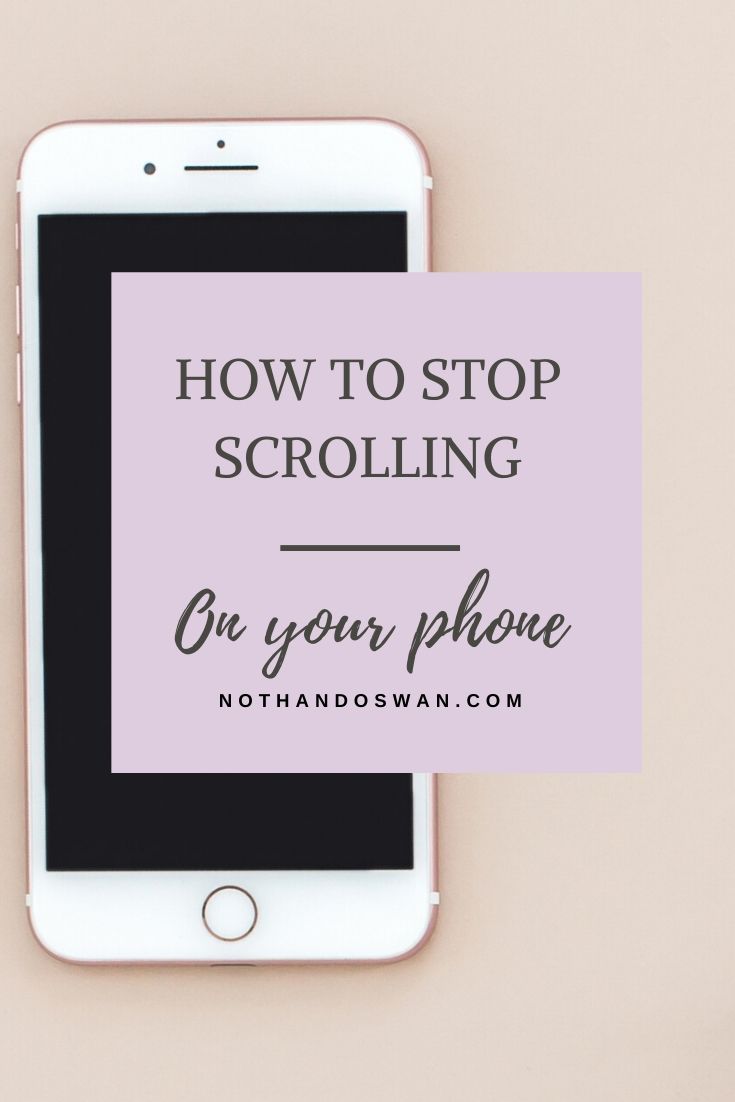
If we’re honest, scrolling is often our reaction to discomfort. We’re on our phones not because they’re benefiting us, but because they’re convenient distractions from whatever else is going on.
Needless to say, that can get in the way of what’s really fulfilling. So in this post, we’re talking about how to reach for productivity instead of for our phones.
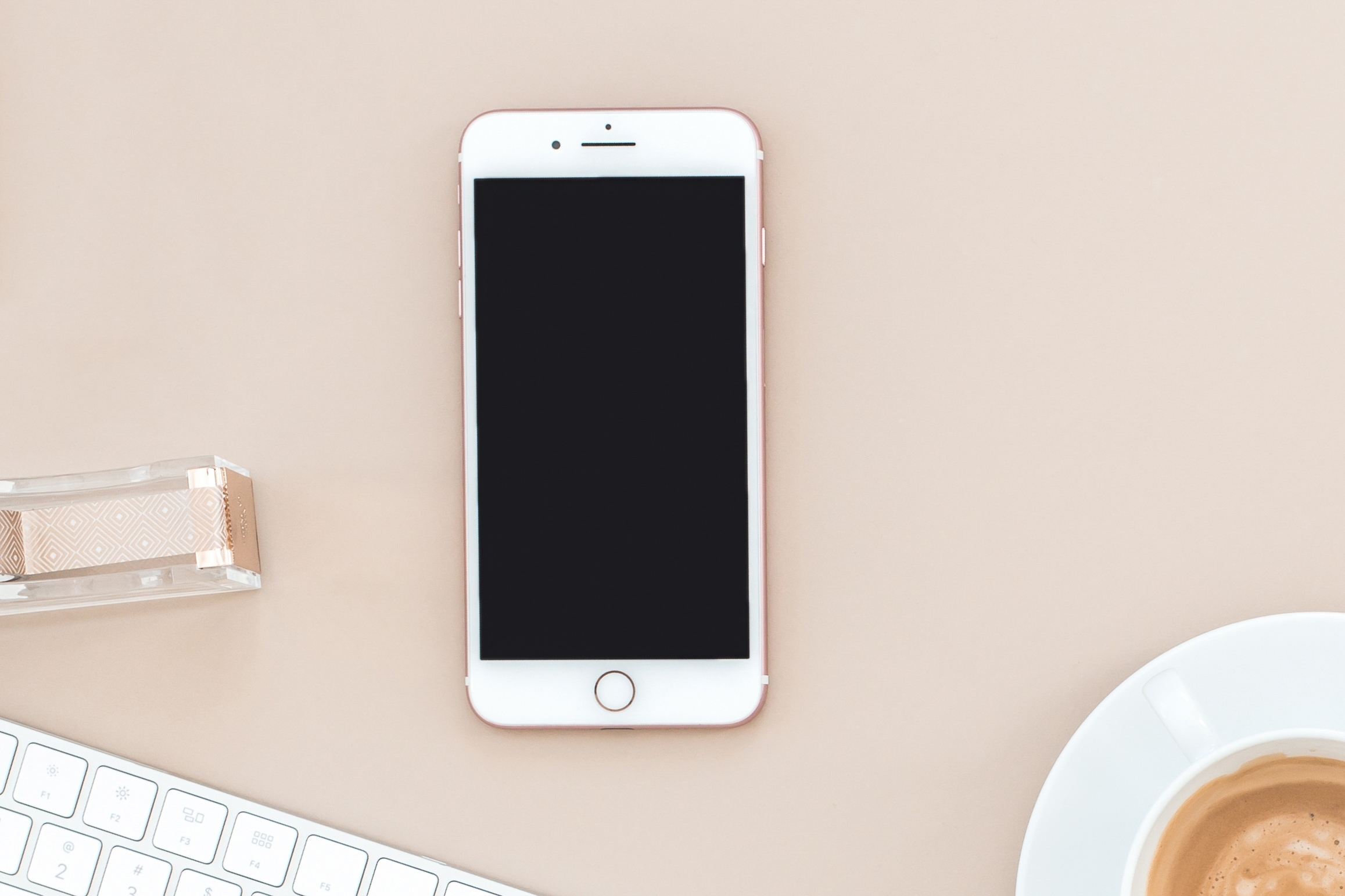
First of all, why do you need it?
No, seriously. The next time you reach for your phone, ask yourself why am I reaching for it?
Like all habits, grabbing our phones is a learned behaviour in response to a specific cue. The most obvious cue is your ringtone or a notification. In those circumstances, picking up your phone is a normal reaction.
However, the problem is when we’re responding to less obvious cues. We’re scrolling without identifying our triggers.
Like, I thought I was writing a paper, but now I’m looking at pretty little squares that people have posted on Instagram.
The trick to using your phone less often is to become aware of the cues that prompt you to reach for it in the first place. Here are some common ones.
Cue # 1: Overwhelm
That example wasn’t a joke y’all. I can’t tell you the number of times I’ve sat down to work on something and then found myself on Instagram instead. This usually happens when I’m doing work that I find challenging, like a literature review.
Essentially, overwhelm is the root of this problem. I wrote all about how to deal with overwhelm in another post, so here I’ll tell you how not to deal with it.
Do not grab your phone.
This is the easiest thing to do, but it’s also the least productive. And it’s a time suck. We know this!
Just to be clear, it makes perfect sense why your brain might think, this project is hard and that over there is easy. Let’s just scroll. It’s a subconscious mechanism to get out of the hard stuff.
When I had to redesign my resident research project, my phone suddenly became my best friend. Every time I needed to consult the literature about an idea, I’d get overwhelmed, I’d freeze, and then I’d find the easiest way out. (Read: How to Deal When You’re Feeling Overwhelmed)
For me, that was pretty pictures on Instagram. If you can’t be on the beach, at least look at it, am I right?

But in all seriousness, the point is it’s important to recognize that feeling overwhelmed is often your cue for to look for something that’s easier.
But instead of using your phone to catch up on social media, you could use it to set a timer.
Tell yourself that even though you’re overwhelmed, you’re going to work on this thing for 20 minutes. Then, you can reassess.
Cue # 2: boredom
Have you ever reached for your phone, just because? I mean, it’s right there anyways. Sometimes, the cue is boredom and our response is to check our social media.
Tell me though, when have you casually checked social media and been glad that you did? Y’all, these apps are specifically designed to keep us on them, and so turning to them whenever we’re bored gets time consuming. We don’t have that kinda time. We’re working on things.
Instead, download more productive apps.
I use language learning apps when I’m bored for two reasons. First, I like to think of them as a productive form of procrastination. And secondly, there’s only so much learning I can do in one sitting.
In other words, I know I’m not going to be stuck on these apps for hours because, quite frankly, I’ll get tired of using my brain. Social media, on the other hand, does not require me to use my brain.
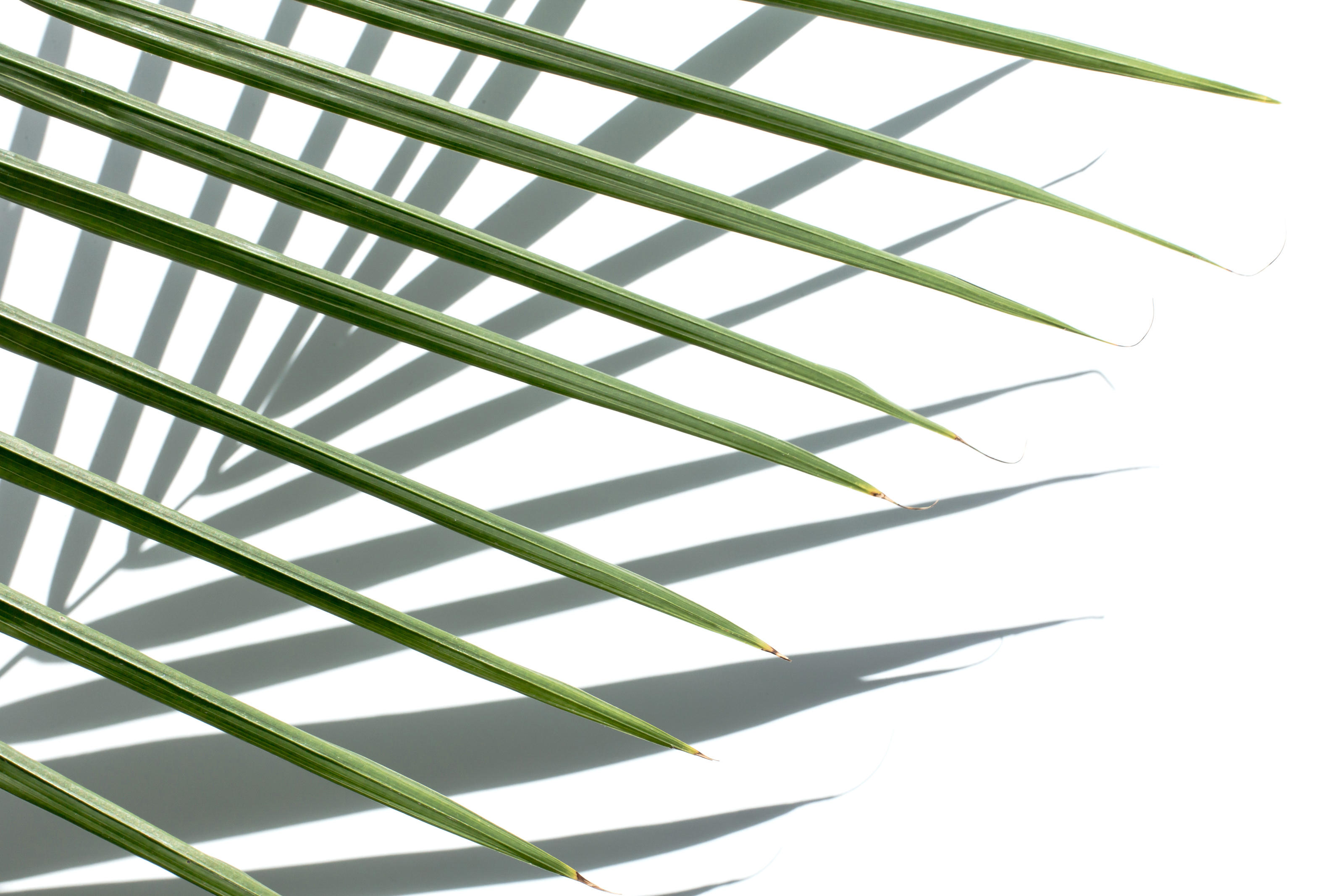
If you’re not learning a language, you could use flashcard apps to quiz yourself on something you’ve learnt recently. When you’re bored, scroll through these bits of trivia to remind yourself of useful information and see how much you’ve retained. Or you could download puzzles, crosswords, sudokus… whatever!
Again, since there’s only so much thinking you can do on your phone, you’ll be so much less likely to lose a lot of time this way.
Cue #3: feeling alone
Now this cue’s a little less relatable for me, not because I’m so popular, but because I’m such an introvert. I crave my alone time, but apparently, many of us don’t.
Sometimes, we’re reaching for our phones because we crave connection. And while there are so many valuable communities online, our in-person connections can be so much more impactful.
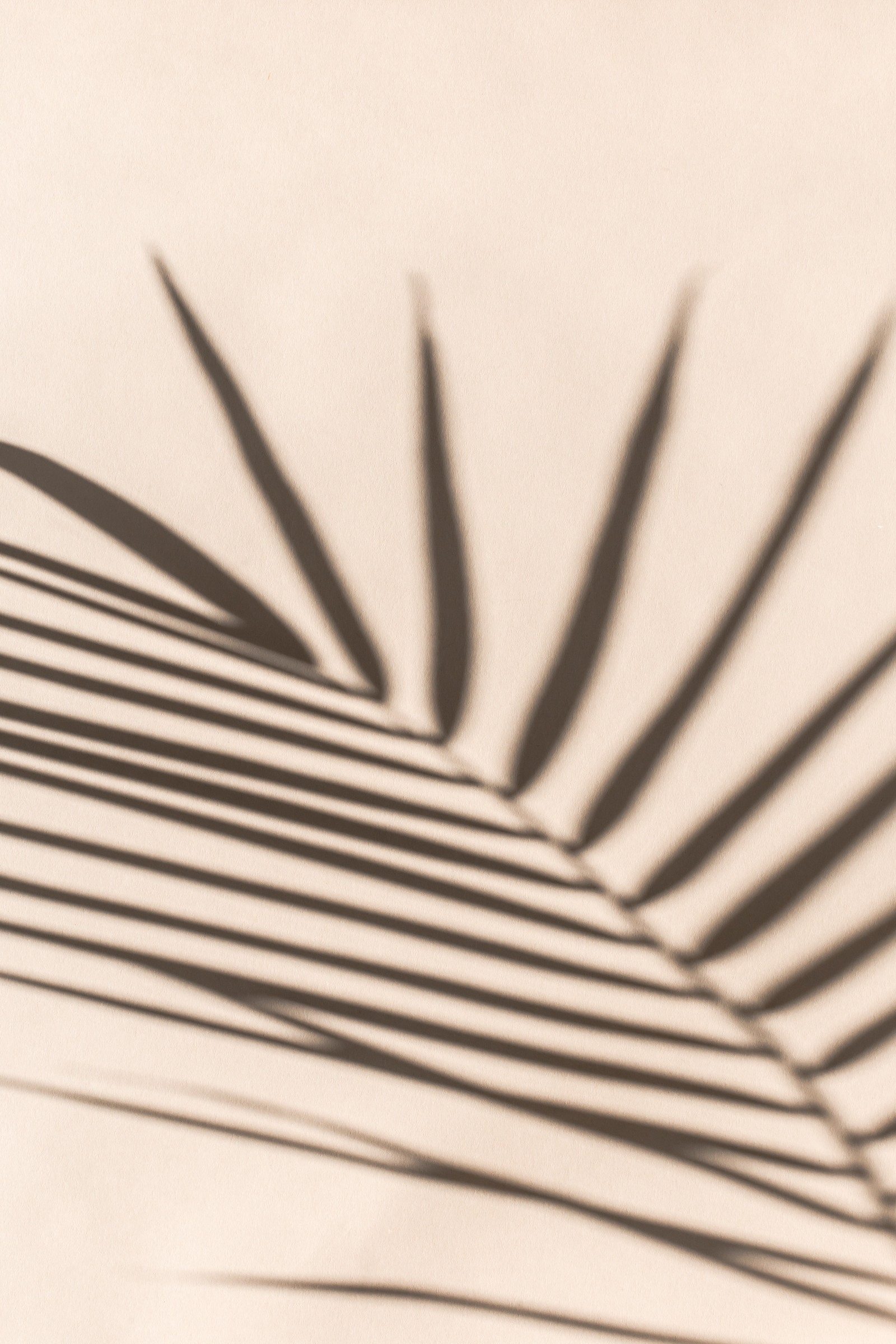
The next time you’re craving connection, contact three friends. Send a text message, a voice note, or even call.
We all know that what we’re seeing online is only a fraction of what’s going on in the real world. So, why not go find out what’s happening… In. The real. World?
Cue # 4: waiting
I hate to make patients wait, but we all know that when you’re visiting the doctor, chances are you’re going to have to wait. There are so many times when we find ourselves waiting on other people in both social and professional situations.
Listen to me: if you know this might happen, bring a book. Read something while you wait so that even if your friend (or doctor) is late, you won’t mind. You were really hoping to get through those last few pages, anyways.
Or, you could bring some work along, provided that it’s relatively simple stuff to do. This way, when you have a long wait time, rather than responding with social media, you can do something that’s a bit more productive with your time.
Cue # 5: fatigue
This one’s a trap! And it’s a tricky one. For some reason, we’ve convinced ourselves that social media is a “break.”
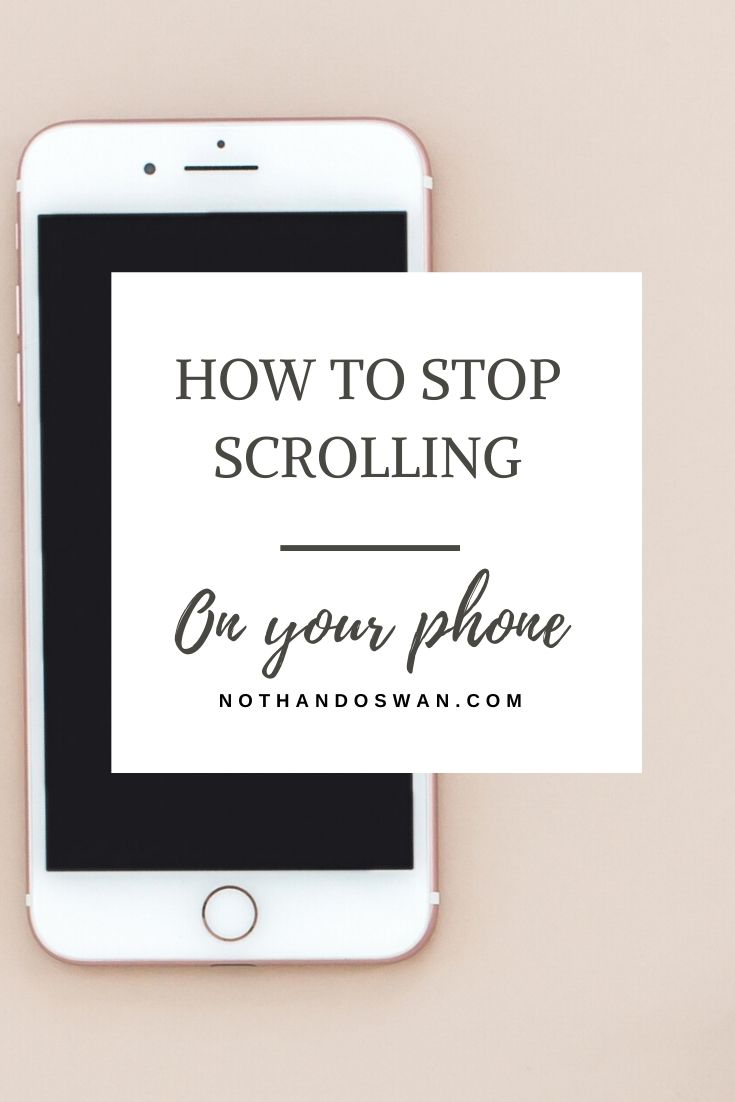
We’re tired from work or school or planning and so we’re rightfully craving a bit of rest. The cue is fatigue, and our response is to scroll.
So tell me, when’s the last time you came off logged off of social media and thought, “Wow. That was so refreshing”?
I’ll wait.
Social media is not a break. Social media is not restful. Food, communication, massage, actual rest… those things are breaks.
If you need something on the go, listening to music or podcasts are other restful alternatives to social media. If you’re really tired and insist on using your phone to help with that, maybe just listen to a good playlist. Or listen to a podcast that shares content that you love.
These are much better ways to use your phone in response to fatigue.
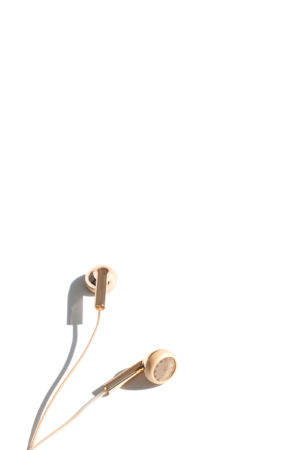
Ways that our phones can aid our productivity
In the same vein, there are lots of ways that you can use your phone to be productive. You can use your phone for:
- Writing down ideas on the go
- Checklists for errands
- Calendar details and reminders
- Tracking physical activity, and for
- Maps and directions
I definitely need that last one. It’s almost counter-productive for me to try to get anywhere without using a set of directions. In fact, it’ll take me a full half hour to realize I’m headed north instead of south. So I stay using data for Google maps.
Ways that we can aid our productivity
On the flip side, let’s talk about how to minimize your phone use altogether. I know you know these, so I’m just going to leave these friendly reminders here:
- Hide/delete apps. Or if that’s a bit much, check your settings to see if those apps will alert you when you’ve spent more than a certain amount of time on them. (My IG lets me know when I’ve spent 15 minutes on it. Stop looking at the beaches, Nothando.)
- Use do not disturb when you’re doing important work
- Charge your phone in an area that’s separate from your work space
- Limit your social media use to only specific times of the day
- Create phone-free zones (ex. no phones in the bedroom or bathroom
Limit your social media use to only specific times of the day
Summary
To sum it all up, the number one key to minimizing your social media use is to be more aware of the cues that trigger you to reach for your phone in the first place. I know I can’t be wasting time on my phone because there are so many things I’m passionate about. Very few of them require my phone.
If you’re also multi-passionate and you’ve found your phone to be a constant source of procrastination, consider whether or not overwhelm, boredom, waiting, fatigue and/or loneliness are contributing to your phone use. If they are, you can replace your responses with more productive hacks.
- Overwhelm – use your phone to time 20 minutes of productive work
- Boredom – use a learning app instead of social media
- Feeling alone – send three people a personal message
- Waiting – bring something to read/ do
- Fatigue – listen to music/ a podcast instead of scrolling
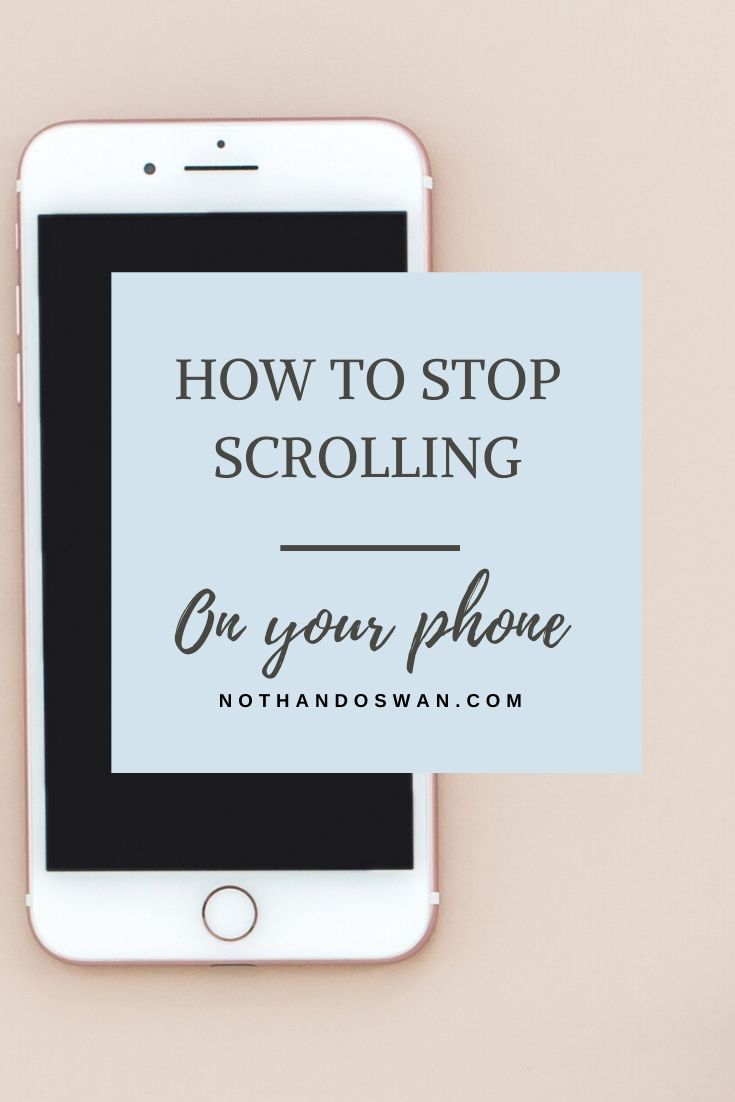
Obviously, there are so many things that our phones can help us do. We can use them to jot down inspiration, make checklists, stay on track and get places.
Sometimes, we have to take a moment and recognize our part in over-scrolling. If you’ve read this, I’m so proud of you for identifying what might be causing you to reach for your phone. Now, you can interrupt these habits. You can hide/delete certain apps, mute notifications, and physically move your phone into different spaces.
I hope this was helpful, and if you have any other ideas about how to use your phone in a more productive way, let me know in the comments below. Next, we’re talking all about how to clear your email inbox and keep it that way!
